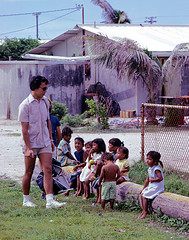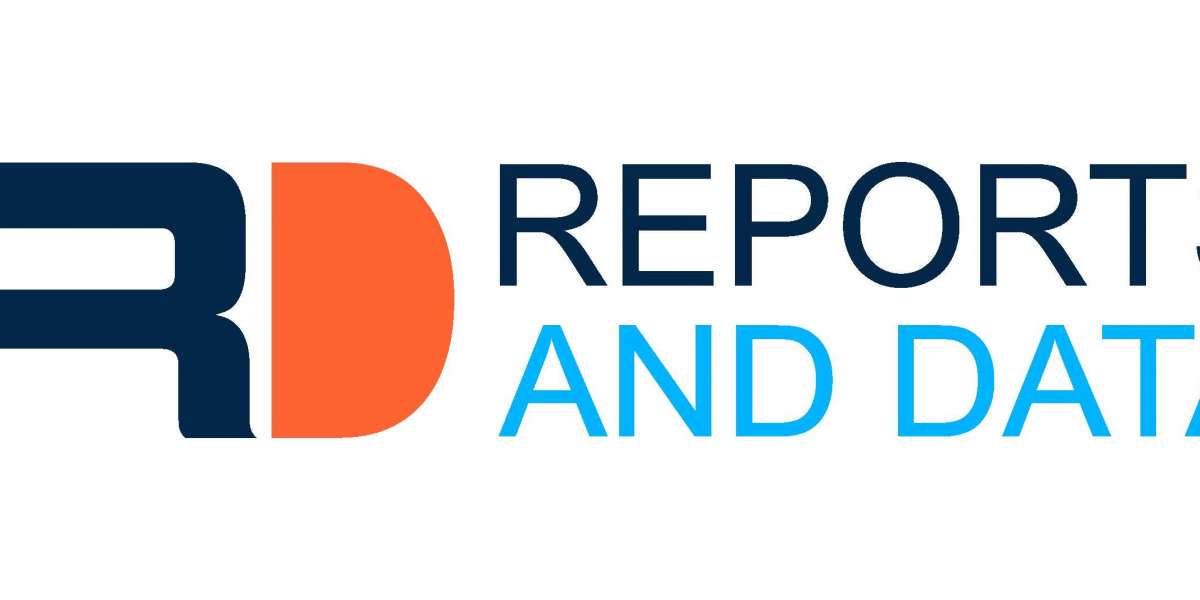
RMI Education and Skills Strengthening Project
The Government of the Republic of Marshall Islands has gotten funding from the World Bank for the Education and Skills Strengthening Project (ESSP) expense. It means to apply part of the profits for seeking advice from services.
The consulting services ("the Services") will assist the Project Manager and the RMI National Training Council in implementing the World Bank-funded job effectively.
The project will concentrate on supporting the Project Implementation Unit (PIU) in developing a framework for Recognition of Prior Learning (RPL) for TVET, targeted at assisting the College of the Marshall Islands and the RMI National Training Council assess and boost the abilities of employees through certified college certification.
The comprehensive Terms of Reference (TOR) for the assignment are shown in the connected Terms of Reference (ToR).
The National Training Council now welcomes qualified individuals ("Consultants") to suggest their interest in supplying the Services. Interested Consultants should provide details demonstrating that they have the required credentials and appropriate experience to carry out the Services (attach a Cover Letter of no greater than 4 (4) pages addressing the mandatory experience and credentials requirements curriculum vitae with a description of experience in comparable assignments, similar conditions, and so on). Companies' staff might reveal interest through the using company for the project. In such a situation, only the experience and qualifications of individuals will be thought about in the selection process. The criteria for electing the Consultant are: A.
Mandatory Qualifications and Experience Master's degree in education, training

, management, or a related field. Minimum of 5-10 years of experience working in TVET System. Curriculum Design and Systems.
Have 2-5 years' experience creating and
executing RPL. frameworks, policies, and procedures. A sample of previous work will be needed as evidence of previous experience. Excellent interaction, training, and assistance
abilities. Experience with working with varied stakeholders, consisting of government. agencies, TVET organizations, employers, and students in the Pacific. B. Desired Qualifications and Experience Ability to deal sensitively in a multicultural
environment and develop efficient team relationships with customers and relevant stakeholders. The attention of interested Consultants (including companies )is drawn to paragraphs 3.14, 3.16 and 3.17 of the World Bank's"
Procurement Regulations for IPF Borrowers "July 2016 modified November 2020" Procurement Regulations ", setting forth the World Bank's policy on conflict of interest. More info can be acquired at the address listed below during workplace hours, 0900 to 1700 local time. Expressions of interest should be
provided in a written type to the address below (in person or by e-mail )by 5:00 pm, 23rd December 2024.
The subject line needs to state:"National Training Council Strategic Plan Consultant -complete name of the candidate". Julius Lucky Director National Training Council!.?.!ntcdr@ntcinfo.org:Phone: 692 625-4521 Empowering Community Champions for Sustainable Development in RMI Gender Equality, Climate Resilience and Water Safety Training Majuro,

Republic of the Marshall Islands: The fourth
Women and Youth Training for
Gender Equality, Climate Change, Disaster Risk Reduction and Water Safety Management has recently taken place at the University of the South Pacific's school in Majuro, the Republic of the Marshall Islands(RMI ). This crucial training was arranged by the United Nations Development Programme( UNDP )Pacific Office through the Addressing Climate Vulnerability in the Water Sector(ACWA) job. The week-long capacity-building training intended to empower ladies and youth with the knowledge and practices required for climate-resilient water safety management in the
Republic of the Marshall Islands(RMI ). This training enhances a commitment to enhancing RMI's water security and neighborhood durability against environment modification impacts, specifically ladies
and youth, guaranteeing that no one is left behind. The training invited individuals from all 24 atolls and featured resource speakers from government firms, non-governmental companies, and global advancement partners from the RMI Environmental Protection Authority, Climate Change Directorate, Office of the Chief Secretary, Ministry of Culture and www.adb.org Internal Affairs, National Disaster Management Office, Women United Together Marshall Islands, RMI Human Trafficking Task Force, Waan Aelõñ in Majel, Jo-Jikum, and the International Organization for Migration. In her opening remarks, Secretary for the Ministry of Culture and Internal Affairs, Brenda Alik, highlighted the significance of cumulative action in developing a climate-resilient nation."It is our duty to come together and interact. As we face the difficulties positioned by climate modification, understanding its impact on our water resources is important for enhancing the well-being of neighborhoods across the Marshall Islands,"she stated.
RMI Environmental Protection Authority General Manager Moriana Philip highlighted in her speech the essential function of ladies and youth in attending to climate-related difficulties."This workshop joins us from numerous neighborhoods to deal with the pressing problems we face today, consisting of climate-related challenges, especially on our water resources."We want to stress the crucial role of ladies and youth in this project as your participation is instrumental to its success and beyond, "she stated.
The first day of the workshop covered vital issues associated with gender equality, human rights, and public health within the Marshall Islands. It included conversations on gender equality and mainstreaming, focusing on the impacts of environment change on water security and the disproportionate impacts on susceptible groups. The value of incorporating gender equality and social addition into all task aspects was likewise discussed. Human rights and human trafficking were tackled, stressing the need for extensive protection of susceptible populations
during emergencies. Furthermore, the workshop attended to gender-based violence, highlighting the numerous forms that can arise in disaster scenarios, such as domestic violence and sexual coercion. The agenda concluded with a focus on sanitation and health and their essential role in health, livelihoods, school participation, dignity, and structure resistant neighborhoods. ACWA Project Manager Koji Kumamaru revealed his thankfulness to all participants
, highlighting the significance of their contributions to their neighborhoods."Women and youth are key to the success of the ACWA job. More importantly, you are the champs and future leaders who will go back to your neighborhoods to empower others,"he stated. Throughout the workshop, participants checked out Rongrong Island and took a look at the 15,000-gallon Flatpack Modular water tank installed at the Rongrong High School Boys Dormitory as part of the ACWA project. The setup is a crucial part of the job, matched by assistance from Australia
's Department of Foreign Affairs and Trade. The visit acted as an important firsthand experience of the favorable effect of the ACWA job on the neighborhood and its
water resources. Marie Naisher from Jabat Island revealed her appreciation for the opportunity to join the workshop and made clear her desire to be part of the task when it reaches Jabat.

"This was my very first time taking part in such training, and I discovered a lot from the guest speakers, group activities, and the website see. I now understand the value of tidy water and how to sterilize it. I'm ecstatic about the ACWA task concerning Jabat and prepared to help when it shows up,"she said. Don Kobney, an ACWA site coordinator from Santo, Kwajalein, also shared his excitement."The workshop and site check out boosted my self-confidence and understanding of the water tank installation.
Seeing the 15,000-gallon flatpack modular water tank firsthand offered me a clear understanding of the system, and I'm looking forward to sharing this knowledge with my neighborhood, "he stated. By the workshop's end, participants were better equipped to understand climate change and its regional effects, drive adjustment and mitigation efforts, especially in water safety, and utilize brand-new resources to impact their communities favorably. ACWA is made possible thanks to the support of the Green Climate
Fund, with the task co-financed by the Government of the Republic of the Marshall Islands
. The Marshall Islands: Skills Training and Vocational Education Project Assesses the efficiency of the job and highlights lessons. Supplies inputs to two more comprehensive evaluations- the local assessment of ADB assistance for the Pacific and the special examination research study on Millennium Development Goals. The low educational achievement and lack of Marshallese skilled workers were largely due to the poor quality of standard education, lack of access to education in the external islands, and weaknesses in abilities training and the vocational and technical education system.
These supported an economy marked by high joblessness because of constrained private sector growth and government downsizing. Unemployment was particularly high among the youth and ladies in the external islands. Suitable local proficient workers for existing task vacancies
were unavailable, thus the importation of appropriately skilled foreign employees. Therefore, there was a mismatch between offered tasks and skills of the Marshallese labour force. These conditions supplied the effort for the Government
of the Marshall Islands to focus on technical and trade education training reforms. In 2000, ADB authorized a loan for $9.1 million to enhance abilities training to offer well-trained employees required for continual economic and social advancement. This was to be accomplished through an integrated national skills training system. The task included 4 parts: advancement of a career awareness program, skills training enhancement, enhanced skills training chances for women and youth, and institutional strengthening. The anticipated result was increased income-generating chances and employment for students, particularly women and youth in the external islands. Overall, the project was rated not successful. Minimal progress was accomplished in making the project responsive to the requirements of its recipients and private-sector companies. The long-standing weakness of bad numeracy and literacy proficiencies
among public elementary and secondary school graduates and dropouts getting in college or going to voc-tech education could be partly credited to the poor quality of fundamental education. The job was supply-driven and might not develop a strong linkage with private sector requirements or align its activities with the needs of the labour market. The status of the technical and vocational education training system has stayed fundamentally the very same after task completion. The research study advanced that ADB could encourage the Government of the Marshall Islands, through consultation and policy discussion, to follow through on the government's
dedication to establishing a committed labour details system to connect technical and occupation education training program offerings with industry demand. Although the job set up a labour market details system, in the absence of internal staff capability at the National Training Council, it was not totally operational.







